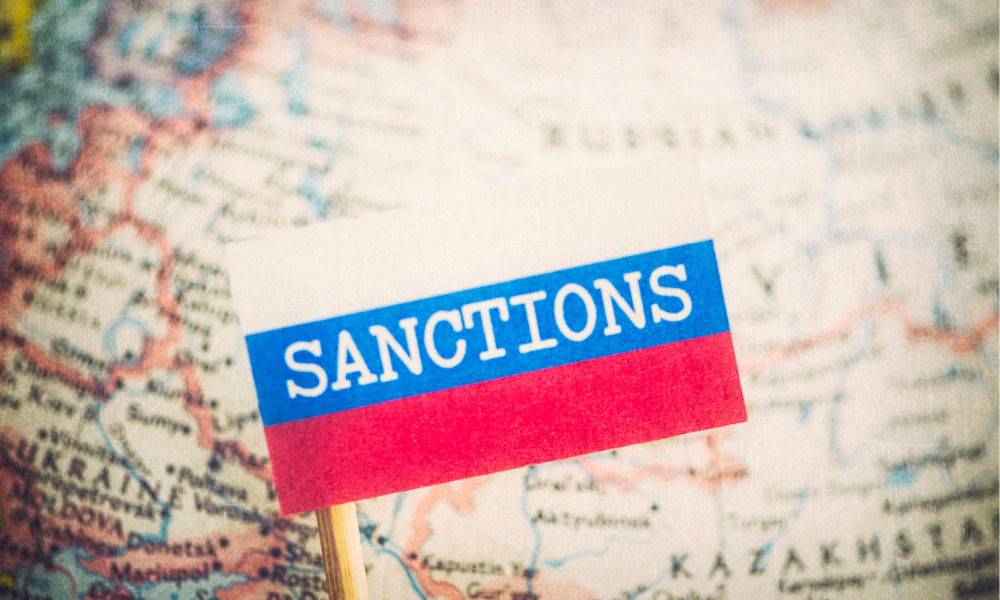Prohibition part of latest sanctions

Canada has imposed another round of sanctions on Russia to undermine and erode the capabilities of the Russian military amid the ongoing conflict in Ukraine.
On Mar. 24, the federal government issued new regulations to amend the Special Economic Measures (Russia) Regulations. Section 3.6(1) of the new regulations prohibits any Canadian citizen or person in Canada from exporting, selling, supplying, or shipping any good described in the Restricted Goods and Technologies List to Russia or any person in Russia.
The Restricted Goods and Technologies List includes a broad range of items in electronics, computers, telecommunications, sensors and lasers, navigation and avionics, marine, aerospace, and transportation.
Meanwhile, s. 3.6(2) prohibits any Canadian citizen or person in Canada from providing technology to Russia or any person in Russia described in the restricted list. The term “technology” pertains to technical data and any form of technical assistance, such as providing instruction, training, consulting, or technical advice services and transferring know-how or technical data.
However, the new regulations exempt certain goods from the prohibition under s. 3.6(1). These goods include:
- Goods for use in support of international nuclear safeguards verifications or in relation to the activities of the International Space Station;
- Equipment and spare parts necessary for the proper operation of an aircraft or ship;
- Goods exported for use or consumption on an aircraft or ship registered in Canada or the U.S.,
- Consumer communication devices generally available to the public, such as computers, television and radio receivers, and recording devices;
- Personal effects exported by individuals that are solely for the use of their immediate families;
- Goods for use by media representatives from Canada or partner countries, including E.U. countries, the U.S., the U.K., Australia, Japan, New Zealand, and South Korea.
The prohibition on technology does not apply if the technology relates to goods not subject to prohibition under s. 3.6(1).
“It is highly recommended that businesses conduct a thorough review of the Restricted List and confirm whether or not their goods or technology-related sales and services meet the descriptions therein,” EY Law LLP stated in its tax advisory. “As the prohibitions cover selling, supplying and shipping, in addition to exporting activities, monitoring of the entire supply chain is necessary to minimize the risk of inadvertent non-compliance with the sanctions.”










